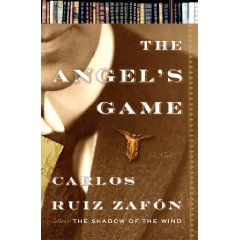 I picked up The Angel’s Game by Carlos Ruiz Zafon last week after a colleague recommended it, and settled in, somewhat skeptically, to give a new writer (by new, I mean one I had not read previously) a fair shot. It had been described to me as a dark mystery by a writer who Stephen King recently raved about. And as one of King’s Constant Readers, I trust his word more than I’d trust that of any clergyman.
I picked up The Angel’s Game by Carlos Ruiz Zafon last week after a colleague recommended it, and settled in, somewhat skeptically, to give a new writer (by new, I mean one I had not read previously) a fair shot. It had been described to me as a dark mystery by a writer who Stephen King recently raved about. And as one of King’s Constant Readers, I trust his word more than I’d trust that of any clergyman.
I was not disappointed.
Zafon brought me down the familiar road of writers writing about writing, and into early 1900’s Barcelona and the life of David Martin. Martin is a young boy working at a local paper, The Voice of Industry. His early writing career is bestowed upon him by a young, charismatic benefactor who has a soft spot for the budding storyteller.
Later in his career, Martin enjoys enormous success writing trashy horror stories for an even trashier publication, run by sleazy publishers. Writing under a pseudonym, Martin begins to dream about writing under his own name, and thus enjoying his success in his own right, a dream that his already successful (although a horrible writer) benefactor shares. Thus begins Martin’s descent into darkness as a mysterious French publisher makes him an offer worth his soul.
On the surface, this is a typical story based on the competing notions of good and evil, light and dark, God and The Devil. Zafon constructs the story in such a way that, beyond the title, there is little mention of God, and yet, one feels that there is an omnipotent force pulling the strings in the lives of David and those who are acquainted with him. Yet, it is much more than that. It steps further, leaving the reader questioning who is “good” and who is “evil”, and if in fact, they aren’t one and the same.
Underneath, if you look closely through the eyes of a young, struggling writer, you see a play on the insecurities of a writer who can gain thousands of readers under a ghost name (more than one, in fact), and yet cannot sell a single copy under his own. It plays directly into the notion of literary publication being tantamount to immortality, shows exactly how desperate a writer can get, and delves into both the magic and consequence of a writer’s craft. Much the same way that King attributes a power of their own to his characters, Zafon brings Martin, and what he writes to life.
When I closed the cover and replaced the sleeve I was left with two resounding thoughts; 1) Would I sell my soul to be published? and 2) I must visit Barcelona, and remember to bring a pen.
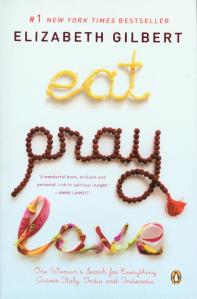 Does anyone else cringe when they hear the term “chick lit”? I always thought it was a term that was thrown around in book reviews to define material written by and for women, but behold, “chick lit” is an entire genre, like horror, that agents and publishers recognize. And, it just won’t go away. Take Eat, Pray, Love by Elizabeth Gilbert for example. Despite the book being published in 2006, it seems to still be lurking in the media, and setting the standard by which all women writers are being compared.
Does anyone else cringe when they hear the term “chick lit”? I always thought it was a term that was thrown around in book reviews to define material written by and for women, but behold, “chick lit” is an entire genre, like horror, that agents and publishers recognize. And, it just won’t go away. Take Eat, Pray, Love by Elizabeth Gilbert for example. Despite the book being published in 2006, it seems to still be lurking in the media, and setting the standard by which all women writers are being compared.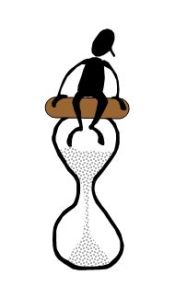 It is August, and I hand my mother a list. She looks at it, and then looks back at me; it’s my Christmas wish list (including a section for Birthday, which falls 13 days before Christmas). She puts it on the fridge, and there it sits until December, when normal people start thinking about Christmas. But, in my head, I have been unwrapping gifts since before Labour Day.
It is August, and I hand my mother a list. She looks at it, and then looks back at me; it’s my Christmas wish list (including a section for Birthday, which falls 13 days before Christmas). She puts it on the fridge, and there it sits until December, when normal people start thinking about Christmas. But, in my head, I have been unwrapping gifts since before Labour Day.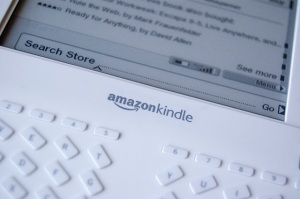 Last time, I talked about the supposed demise of books due to the technological revolution and the uphill battle that publishers and pushers of paper of all kinds are facing with the combined force of a weakened economy and a (relatively) free forum like the Internet from which to gather information. I questioned
Last time, I talked about the supposed demise of books due to the technological revolution and the uphill battle that publishers and pushers of paper of all kinds are facing with the combined force of a weakened economy and a (relatively) free forum like the Internet from which to gather information. I questioned 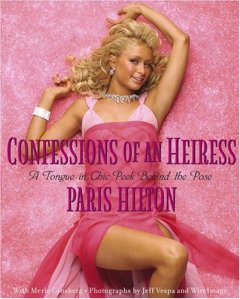 Ominous words coming from respected magazine,
Ominous words coming from respected magazine, 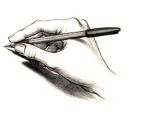 For those of you who know me, thanks for following me from one blog to the next. For those who don’t, my name is Jennifer Astle (please, call me Jenn) and I’m a writer. Although I have always been a “writer” in some form or another, the whole freelance business began when a friend of mine (and legal counsel) advised me to start a blog to occupy my spare time. I had a lot of spare time because I was immigrating to the United States from Canada (I miss you all!), and thus began my freelance writing career.
For those of you who know me, thanks for following me from one blog to the next. For those who don’t, my name is Jennifer Astle (please, call me Jenn) and I’m a writer. Although I have always been a “writer” in some form or another, the whole freelance business began when a friend of mine (and legal counsel) advised me to start a blog to occupy my spare time. I had a lot of spare time because I was immigrating to the United States from Canada (I miss you all!), and thus began my freelance writing career.